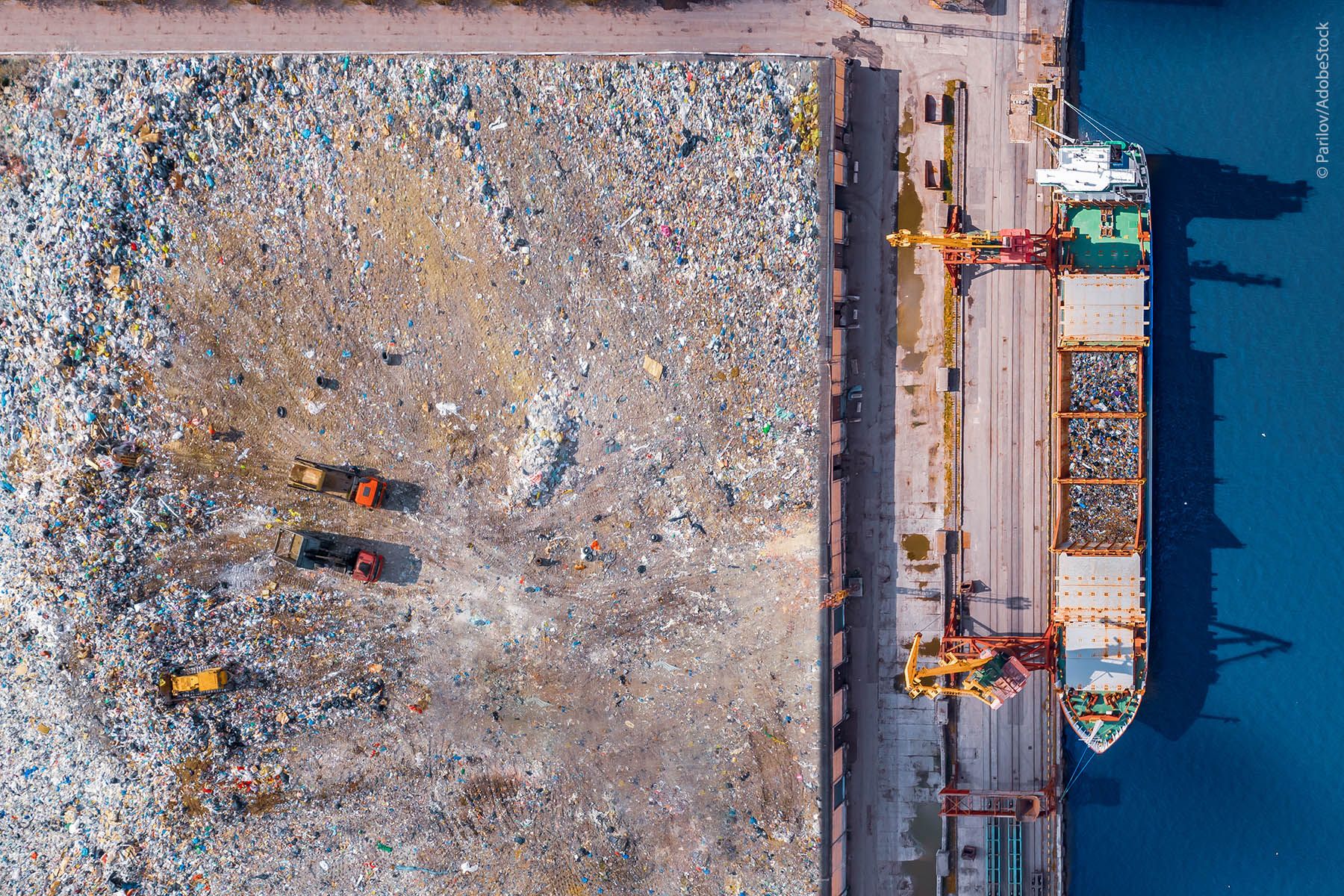The revision of the regulation aims to reduce shipments of problematic waste to outside the EU, update shipment procedures to reflect the objectives of the circular economy and improve enforcement.
It sets procedures and control regimes to ensure that international shipments of waste do not pose a threat to human health and the environment, and to promote the use of waste as a resource in a circular economy within the EU.
The deal is provisional pending formal adoption by both institutions.
Scope and objectives of the regulation
The co-legislators agreed to expand the objectives of the regulation to include climate neutrality and the achievement of the circular economy and zero pollution.
The agreement covers intra-EU shipments of waste (with or without transit through third countries), imported and exported waste from and to third countries, and waste shipments in transit through the EU to or from third countries.
Intra-EU shipments
The text bans the shipments of all waste destined for disposal within the EU, except if consented to and authorised under the strict conditions of the prior written notification and consent procedure (‘PIC’) and in well-justified cases. On the other hand, intra-EU shipments of waste for recovery operations will continue to be allowed following the less stringent procedure set out in the general information requirements (‘green-listed waste’).
The text of the agreement contains a derogation for shipments of waste explicitly destined for laboratory analysis and experiments if such waste does not exceed 250 kg. In this case, the shipment of such waste will need to follow the general information requirements outlined in the regulation.
Notification procedure and timelines
According to the ‘PIC’ procedure, notifiers within the EU and exporters to third countries need to notify and receive written confirmation from the countries of dispatch, destination and transit prior to export. The notification and other documentation required by the regulation is to be submitted and exchanged through a central electronic system operated by the Commission.
The agreement sets out specific timelines and deadlines for the notification procedure, requests for additional information by competent authorities, and decisions by such authorities on the validity of the notification. The timelines agreed by the co-legislators will ensure that no disproportionate delays occur in those processes, while at the same time providing the competent authorities with sufficient time to obtain and assess the documentation and to analyse and respond to requests during those processes.
The text also sets out timelines for notifiers to respond to the written consent from the competent authorities and for the receiving facility to inform the notifier and the competent authorities on the reception of the waste.
In order to provide transparency, the co-legislators agreed to require the Commission to facilitate public access to information related to waste shipments by publishing and regularly updating data on notifications of shipments via its website.

Parliament wants to impose stricter EU rules for waste shipments |
Exports of waste
The agreement maintains the ban for member states to export waste for disposal to third countries and to export hazardous waste destined for recovery in non-OECD countries. For shipments outside the EU member states, the co-legislators agreed that waste management facilities at the country of destination should be audited by independent bodies. The audits would prove that the facilities treat waste in an environmentally sound manner and operators would only be allowed to export waste to these facilities if this were the case.
The new rules require the Commission to establish a register that contains up-to-date information on facilities that have been subject to an audit to help waste exporters prepare for shipments.
Exports of plastic waste
The provisional agreement introduces stricter rules regarding the export of plastic waste to third countries. In particular, it includes a ban on exports of non-hazardous plastic waste (B3011) to non-OECD countries. The text provides for the possibility by non-OECD countries to submit, no earlier than five years after the entry into force of the regulation, a request to the Commission indicating their willingness to import EU plastic waste, if they fulfil strict waste management standards. In the case of positive outcome of the assessment of such request, the Commission will adopt a delegated act to lift the ban for these countries.
The co-legislators agreed to allow the export of non-hazardous plastic waste to OECD countries, subject to the ‘PIC’ notification procedure. The text calls on the Commission to strictly monitor the export of plastic waste to OECD countries to make sure such export does not have significant impact on the environment or human health and that EU-imported waste is adequately managed in these countries.
Enforcement
The provisional agreement calls on member states to lay down effective, proportionate and dissuasive penalties for infringements of the provisions set out in the regulations. These may include, where relevant, fines and the revocation or temporary suspension of authorisations related to waste management and shipments.
The agreement also introduces requirements for member states to ensure that the regulation is effectively enforced by establishing effective cooperation mechanisms at national level and between member states via the exchange of relevant information and good practices. The co-legislators agreed to the Commission’s proposal to set up a waste shipment enforcement group that would facilitate and improve cooperation and coordination between member states, in order to prevent and detect illegal shipments.
Next steps
The provisional agreement will now be submitted to the member states’ representatives within the Council (Coreper) and to the Parliament’s environment committee for endorsement. If approved, the text will then need to be formally adopted by both institutions, following legal-linguistic revision, before it can be published in the EU’s Official Journal and enter into force.
More information: Council of the European Union







Leave a Reply